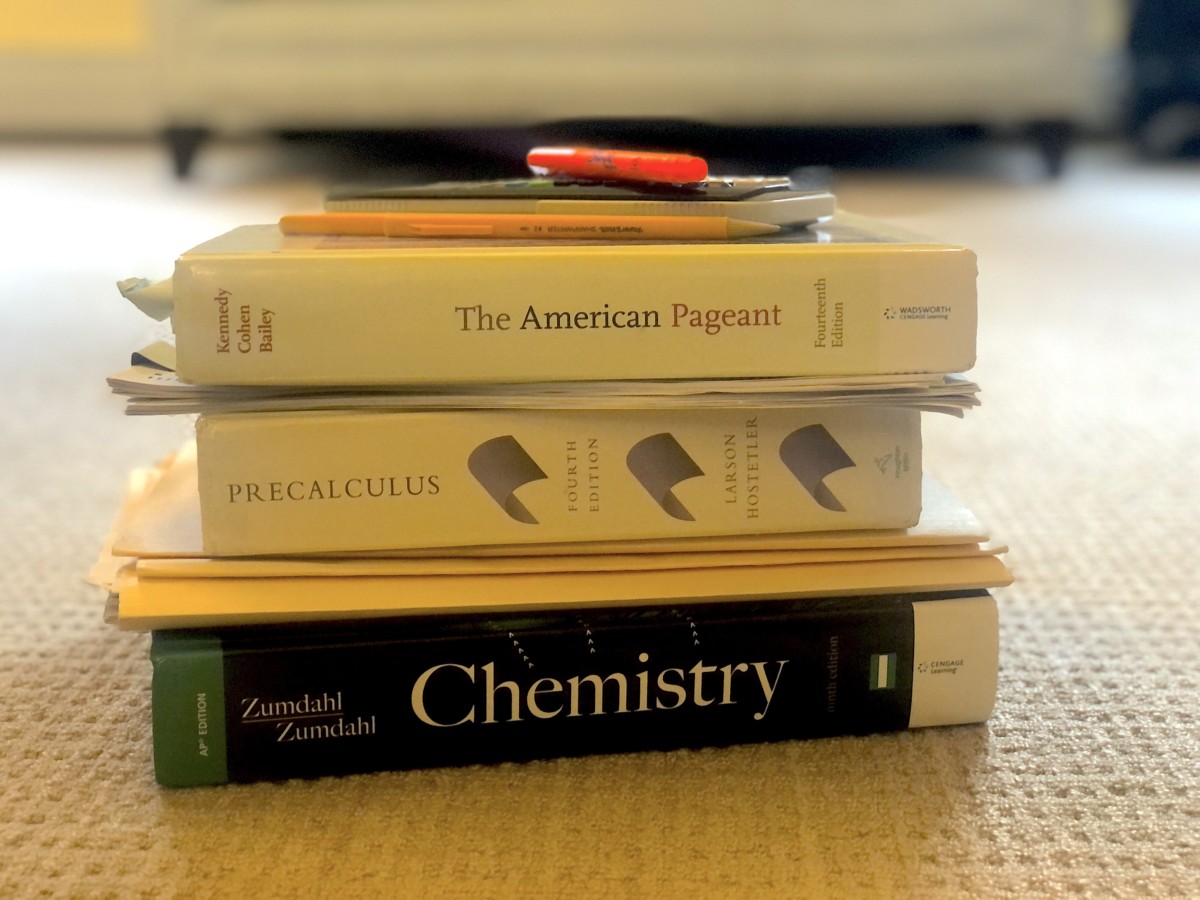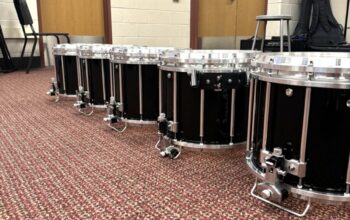Caroline Vincent, News Editor
@cvincentcourant
On December 1, Principal Egan announced that midterms in January will now count for a maximum of 10% of the semester grade, instead of the usual 20% the high school has had in previous years. Individual teachers will have the ability to choose whether or not to administer a test, project, or performance-based assessment, and students will have no more than two assessments per day. These changes were made to reduce stress, ensure test-security, and adapt to the online test-taking environment.
Social Studies Teacher Kristine Goldhawk is a chair of the committee for assessments and grading, where she and her colleagues are in charge of brainstorming alternative solutions for midterms and proposing them to Mr. Egan.
“We are looking at the short term and what we can do for this year, but we are also looking at the long term and how we can change things for the better in the high school,” Ms. Goldhawk said.
In November, a survey was sent out to teachers asking their opinion on midterms. “There was no general consensus, other than reducing the weight and giving flexibility,” Ms. Goldhawk said.
As a result, this year’s midterms will count for no more than 10% of the semester grade, which is significantly lower than the traditional 20%. Midterms will be given out on a course basis where all classes of specific courses if choosing to give exams, must assess in the same way.
“By limiting how much the midterm can be worth, we are trying to calm down the amount of stress that midterms traditionally create,” Ms. Goldhawk said. “You also can’t have more than two on any given day. You’re not going to see as many midterms.”

Similar to Ms. Goldhawk, Mr. Egan thinks that the number of midterms will be reduced. “I didn’t speak to everyone, but I think that most people will not have exams. However, I think there are some areas where people have to. There might be some college and AP classes that require a final exam. Some courses are prerequisites, and you need a certain grade on a final exam to get it to count for graduation requirements.”
Due to these types of classes, Mr. Egan did not want to eliminate midterms entirely. “There will be exams, but there will be far less than we normally have,” he said.
Another change is that midterms will take place over a two-week-long period. “Teachers who wish to administer some type of test, project, or performance-based assessment can do so during one of the 85 minute block periods leading up to the end of the semester,” Mr. Egan wrote in the December 1 update. This change will eliminate the traditional four day midterm period where classes were canceled to give students additional studying time.
“There is a real opportunity to gain back some instructional time lost from the pandemic and the changes in the schedule,” Mr. Egan said. “The more time we can have kids in school, the better off we are. Whether that is virtually or in person, I think that is better than students taking time off to study. We are trying to reduce the number of exams students are taking, which should help reduce the high stakes nature of traditional midterms.”
Some students will be taking midterms online, which raises the question of testing security. Mr. Egan is confident that teachers will develop creative ways to secure a fair test-taking environment for all students.
“They are creating assessments that create fair opportunities for students that are at home or in-person,” he said. “Some teachers are using a lockdown browser and some are changing assessments to fit with the times. I’m trusting that the teachers do that. I am not putting set protocols in place.”
Many students have reacted positively to these changes, including junior Delaney Smith. “I think that the decision to make midterms worth less percentage for your overall grade was a good idea because it is such an odd time, and there is lots of uncertainty,” she said. “I am feeling good about the plan because it will take some stress off of students.”
However, some concerns have arisen from students on whether or not having classes during midterms will be manageable.
“I’m slightly concerned about not having a full week off or not getting the time to prepare because most of my classes are having a midterm anyway, and it might be difficult to balance regular work with studying,” Delaney said. “But, I understand that we need to make up the class time we lost from block scheduling. I am hoping that teachers minimize the workload during those two weeks of midterms so that we can prioritize studying for exams.”




